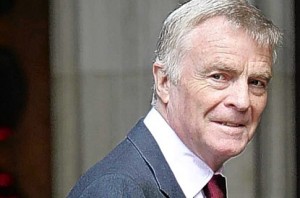Strasbourg Court must reject prior notification
 Peter Noorlander of the Media Legal Defence Initiative warns that today’s action by Max Mosley at the European Court of Human Rights could have grave consequences for free media
Peter Noorlander of the Media Legal Defence Initiative warns that today’s action by Max Mosley at the European Court of Human Rights could have grave consequences for free media
(more…)
 Peter Noorlander of the Media Legal Defence Initiative warns that today’s action by Max Mosley at the European Court of Human Rights could have grave consequences for free media
Peter Noorlander of the Media Legal Defence Initiative warns that today’s action by Max Mosley at the European Court of Human Rights could have grave consequences for free media
(more…)
Three interesting pieces today.
Libel from a European perspective: Dutch newspaper NRC Handelsblad looks at the case for libel reform in London: libel capital of the world
The Times examines the Binyam Mohamed case in Media asks court to reinstate criticism of MI5
and the Press Gazette examines why a Mosley Europe win could end ‘publish and be damned’
On this morning’s Today programme former Formula 1 boss Max Mosley reiterated his call for individuals to have a “right to notification” before newspapers published allegations about their private lives. It was a fascinating interview, and well worth a listen here.
Mr Mosley, who won £60,000 in damages from the News of the World after it alleged he had been involved in a “Nazi orgy” is to deliver a speech on whether the press should be allowed to publish details of a public figure’s private life.
Interviewed by Today presenter John Humphrys, Mr Mosley said that individuals should have a “right to notification” before any allegations are printed about them. “so that if you wish you can go to a judge and if you can convince the judge he’d stop publication”.
Mosley added that he felt there was “no public interest” in the John Terry case. Mosley will be debating this issue tomorrow evening at an event titled Gagging the press: Is the public bound to suffer?. The discussion will be chaired by Lord Justice Moses. Other speakers include Guardian editor Alan Rusbridger and Index on Censorship trustee Sir Ken Macdonald QC.
Mosley’s proposal raise some interesting questions about the right of reply, legal fees etc, which we will be back to discuss later.
I’ve just got back from the Culture, Media and Sport Committee meeting on press standards, privacy and libel in Whitehall.
The meeting was split into two sittings: the first with journalists, and the second with members of the Press Complaints Commission and the Press Standards Board of Finance.
The journalists’ panel addressed an issue very close to Index’s heart: the UK’s defamation law, and its chilling effect on reporters and editors.
Jeff Edwards of the Mirror told how his paper sometimes found itself shying away from even seemingly innocuous stories about the super-rich, such was the fear of massive legal fees should the subject take umbrage.
Sean O’Neill, crime and security editor of The Times, went further, saying that the use of Conditional Fee Agreements in libel cases is ‘distorting journalism and justice’. He claimed ‘predatory lawyers’ were ready to pounce on newspapers, particularly newspapers that attempted to link certain individuals to Islamist terror and extremism.
On the issue of ‘prior notification’ of stories, which Max Mosley had raised as a possible remedy for the publication of stories that invade privacy, Edwards pointed out that enshrining such a system could prove unworkable: people who knew they were to be the subjects of stories could simply make themselves unavailable to the newspaper, turning off their phone, leaving journalists on a deadline hamstrung.
The Guardian’s Bad Science columnist, Ben Goldacre, raised the idea of a press small claims court, where claims of defamation could be settled quickly, with minimal fees.
The second session focused on the role of the Press Complaints Commission. Under sustained questioning, PCC chair Sir Christopher Meyer launched a sound defence of the PCC and press self-regulation, saying it was the only way to protect free expression while simultaneously encouraging responsible journalism.
Responding to the increasingly multi-platform nature of newspapers, (the Sun’s new online radio show, will for example, be subject to the PCC) Meyer said he hoped that one day soon Ofcom would ‘move out of content’, allowing all media to self regulate.
You can watch the meeting here